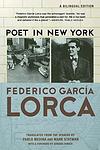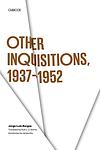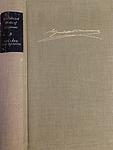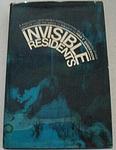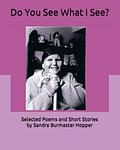The Greatest Polish, Argentinian, Spanish "Modernist" Books of All Time
Click to learn how this list is calculated.
This list represents a comprehensive and trusted collection of the greatest books. Developed through a specialized algorithm, it brings together 305 'best of' book lists to form a definitive guide to the world's most acclaimed books. For those interested in how these books are chosen, additional details can be found on the rankings page.
Genres
Modernist literature is a category of books that emerged in the early 20th century, characterized by a break from traditional literary forms and a focus on individual experience and perception. Modernist writers experimented with language, form, and structure, often using stream-of-consciousness narration and fragmented storytelling to convey the complexity and ambiguity of modern life. Themes of alienation, disillusionment, and the search for meaning are common in modernist literature, which reflects the cultural and social upheavals of the time. Overall, modernist literature is a challenging and thought-provoking genre that continues to influence contemporary literature and culture.
Countries
Date Range
Reading Statistics
Click the button below to see how many of these books you've read!
Download
If you're interested in downloading this list as a CSV file for use in a spreadsheet application, you can easily do so by clicking the button below. Please note that to ensure a manageable file size and faster download, the CSV will include details for only the first 500 books.
Download-
1. Labyrinths by Jorge Luis Borges
"Labyrinths" is a collection of short stories and essays that explore complex themes of infinity, parallel universes, and the blurred lines between reality and illusion. The narratives often feature protagonists who are scholars or librarians, trapped in surreal, metaphysical landscapes. The author's unique writing style combines elements of magical realism, philosophy, and detective fiction, creating an intricate web of narratives that challenge the reader's perception of reality and fiction.
The 304th Greatest Book of All Time -
2. Ferdydurke by Witold Gombrowicz
"Ferdydurke" is a satirical novel that explores the themes of maturity, identity, and societal norms. The protagonist, a thirty-year-old writer, is forcibly regressed by two professors back to his adolescence and placed in a school setting. The narrative critiques the artificiality of adulthood and the pressure of societal expectations, while also exploring the struggle for self-expression and individuality. The book is known for its absurdist humor and its examination of the human condition.
The 403rd Greatest Book of All Time -
3. Hopscotch by Julio Cortázar
This avant-garde novel invites readers into a non-linear narrative that can be read in two different orders, following the life of Horacio Oliveira, an Argentine intellectual living in Paris with his lover, La Maga. The story explores philosophical and metaphysical themes, delving into the nature of reality and the human condition, while also examining the struggles of intellectual and emotional life. The second part of the novel takes place in Buenos Aires, where Horacio returns after La Maga disappears, and where he grapples with his past, his identity, and his place in the world.
The 533rd Greatest Book of All Time -
4. Los Siete Locos by Roberto Arlt
"Los Siete Locos" is a complex and dark novel set in the 1920s in Buenos Aires. The story revolves around a man who, disillusioned with his mundane life and the corruption he sees around him, becomes involved with a group of anarchists who plan to overthrow the government. The protagonist is drawn into a world of madness, conspiracy, and philosophical debate, as he grapples with his own sanity and the morality of his actions. The book explores themes of existentialism, societal decay, and the blurred line between sanity and insanity.
The 1286th Greatest Book of All Time -
5. Poet in New York by Federico García Lorca
This book is a collection of poems by a renowned Spanish poet during his stay in New York City in the 1920s. The poems are a commentary on the urban landscape, highlighting the stark contrast between nature and industrialization. The poet's deep sense of alienation and despair in the face of social injustice and consumerism is evident. The collection is considered a significant contribution to the Spanish literature and an important critique of modern society.
The 1371st Greatest Book of All Time -
6. Insatiability by Stanisław Ignacy Witkiewicz
The novel is a dystopian narrative set in a future where a new Asian empire has conquered Europe. The story follows a young Polish man who, while initially indulging in hedonistic pursuits, becomes increasingly disillusioned with the world around him. As the new empire introduces a mysterious substance known as Murti-Bing pills, which create a sense of contentment and indifference in the populace, the protagonist grapples with the loss of individuality and the erosion of human spirit in society. The narrative is a critique of totalitarian regimes and the dangers of mass conformity.
The 2454th Greatest Book of All Time -
7. Other Inquisitions by Jorge Luis Borges
"Other Inquisitions" is a collection of essays that explore a wide range of topics including literature, philosophy, and metaphysics. The author uses his profound knowledge of world literature and history to delve into complex subjects such as time, identity, and infinity. He also provides insightful commentary on various authors and their works, reflecting on their influence and significance. The book is marked by the author's characteristic style of blending fiction, reality, and scholarly analysis, making it a thought-provoking read.
The 2646th Greatest Book of All Time -
8. Our Lord Don Quixote by Miguel de Unamuno
The book presents a philosophical and introspective analysis of the classic literary character Don Quixote, delving into the existential and moral dimensions of his adventures. The author reflects on the nature of reality, the importance of ideals, and the interplay between sanity and madness, arguing that Quixote's chivalric quests and his refusal to concede to the limitations of his mundane world embody a profound and heroic affirmation of human imagination and spirit. Through this exploration, the work becomes a meditation on the human condition and the enduring power of fiction to inspire and give life meaning.
The 2786th Greatest Book of All Time -
9. Invisible Reality by Juan Ramón Jiménez
"Invisible Reality" is a poetic exploration of the unseen dimensions of life, delving into the profound and often overlooked aspects of existence. The author weaves a tapestry of emotions and thoughts, inviting readers to contemplate the intangible elements that shape our perceptions and experiences. Through a series of lyrical reflections, the work challenges the boundaries between the visible and invisible, encouraging a deeper understanding of the world beyond the physical and the immediate, and fostering a connection with the eternal and the universal.
The 3247th Greatest Book of All Time -
10. Trans Atlantyk by Witold Gombrowicz
"Trans Atlantyk" is a semi-autobiographical novel that explores the author's experiences as a Polish writer living in Argentina during World War II. The book delves into themes of identity, language, and cultural displacement, as the protagonist navigates the challenges of being an outsider in a foreign land. With a blend of humor and introspection, the novel offers a unique perspective on the complexities of exile and the struggle to maintain a sense of self in unfamiliar surroundings.
The 3285th Greatest Book of All Time -
11. The Impenetrable Madam X by Griselda Gambaro
"The Impenetrable Madam X" is a provocative play that delves into the complexities of human relationships and societal expectations. Set against a backdrop of surrealism and absurdity, the narrative follows the titular character, a woman shrouded in mystery and power, who interacts with various other characters in a series of disjointed scenes. Through sharp dialogue and symbolic interactions, the play explores themes of identity, power dynamics, and the struggle for understanding within the confines of a world that oscillates between the real and the fantastical. The work challenges audiences to question the nature of reality and the masks people wear in their daily lives.
The 4800th Greatest Book of All Time -
12. Cinnamon Shops by Bruno Schulz
"Cinnamon Shops" is a collection of short stories that takes readers on a whimsical journey through the author's childhood memories. Set in a small town in Eastern Europe, the stories are filled with vivid descriptions and surreal elements, blurring the lines between reality and imagination. Through the eyes of the narrator, readers are transported to a world of enchantment, where everyday objects and experiences become magical and extraordinary. With its lyrical prose and evocative imagery, this book captures the essence of childhood wonder and the power of storytelling.
The 5106th Greatest Book of All Time -
13. Selected Poems by Federico García Lorca
This anthology is a curated collection of lyrical works by one of the most significant Spanish poets of the 20th century, known for his passionate and haunting verses that often delve into themes of love, death, and the Spanish landscape. The poems reflect the author's innovative use of symbolism, surrealism, and folklore, as well as his deep connection to Andalusian culture. The poet's exploration of identity, societal norms, and the human condition is conveyed through a rich tapestry of imagery and emotion, showcasing his profound impact on both Spanish literature and the broader literary world.
The 7193rd Greatest Book of All Time -
14. Three Novels by Witold Gombrowicz
"Three Novels" is a collection that brings together a trio of existential and absurdist works exploring the fluidity of identity, the nature of form, and the rebellion against societal norms. The narratives delve into the lives of characters who grapple with the pressures of social conformity, the absurdity of existence, and the struggle for authenticity in a world that constantly tries to impose its own definitions and structures. Through a blend of dark humor, philosophical musings, and surreal events, the collection presents a unique and critical examination of the human condition, challenging readers to question their own perceptions of reality and the roles they play within it.
The 7193rd Greatest Book of All Time
Reading Statistics
Click the button below to see how many of these books you've read!
Download
If you're interested in downloading this list as a CSV file for use in a spreadsheet application, you can easily do so by clicking the button below. Please note that to ensure a manageable file size and faster download, the CSV will include details for only the first 500 books.
Download



